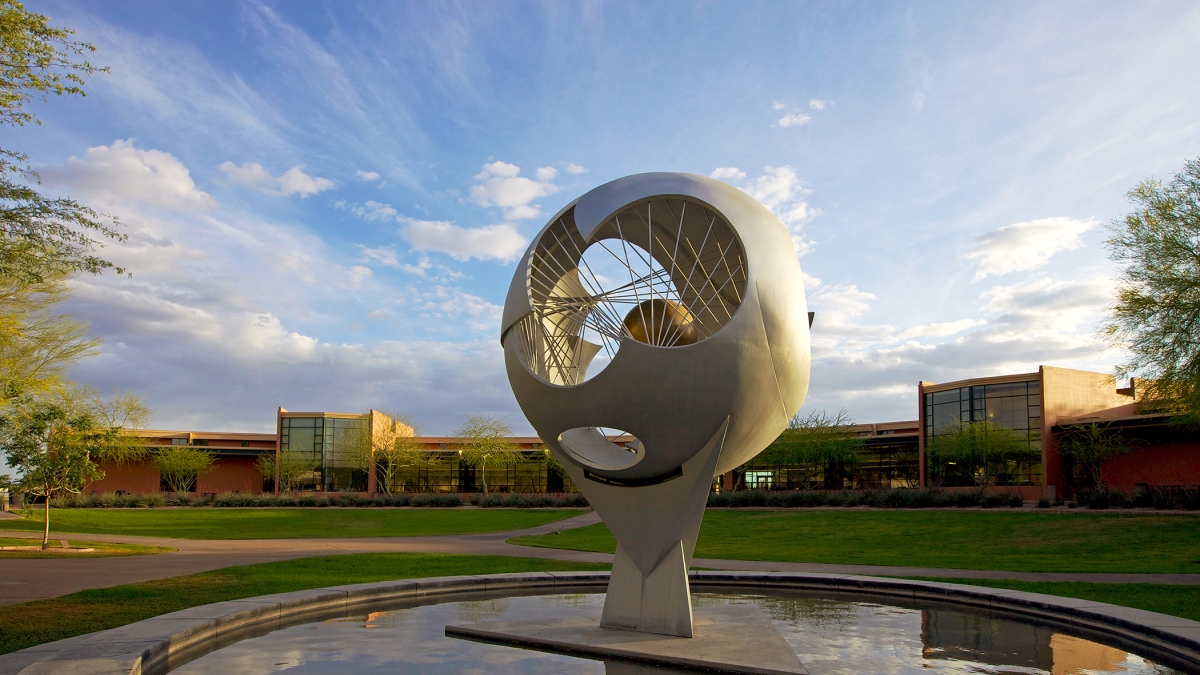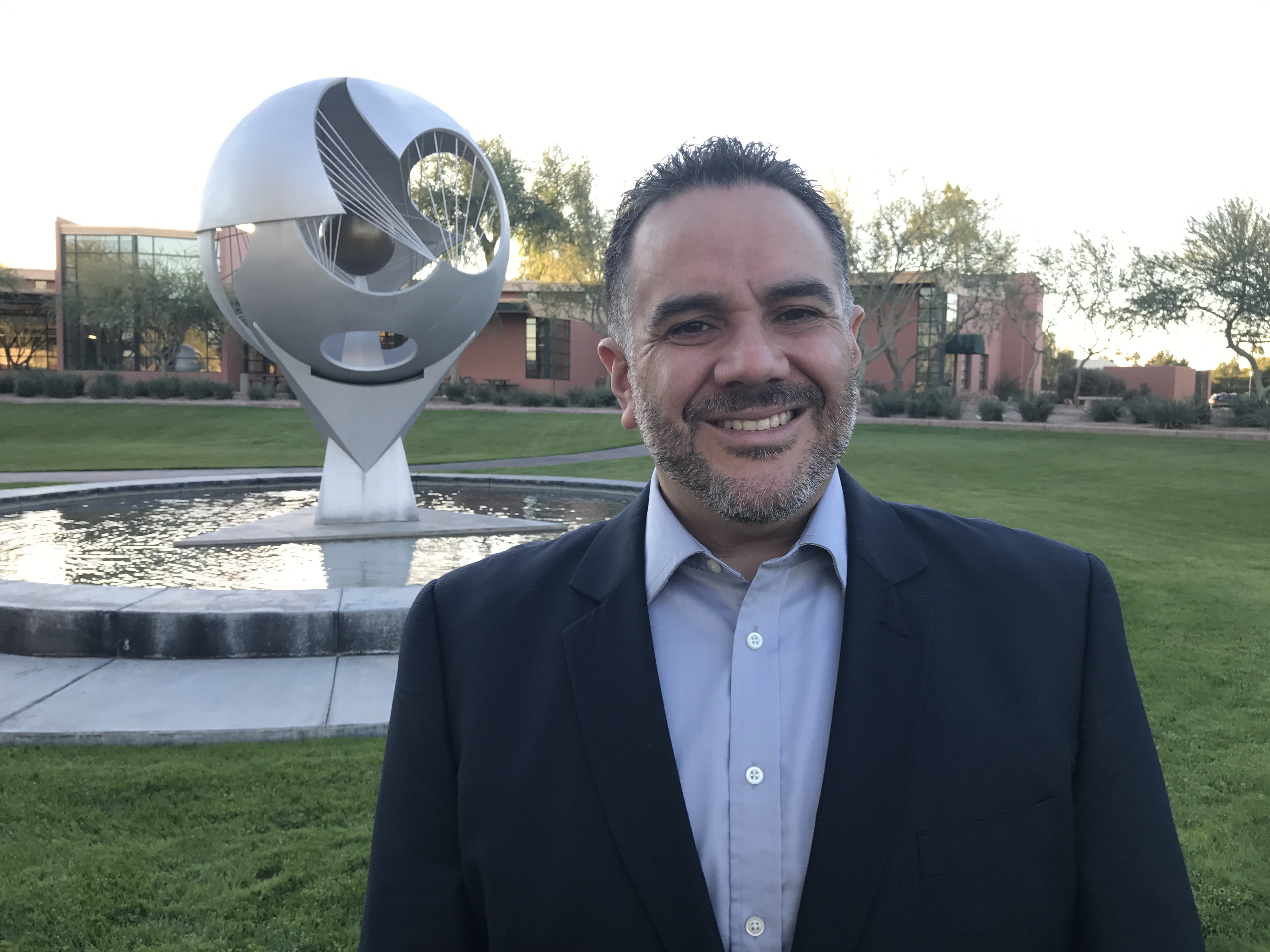In connecting to his heritage, Thunderbird grad sees opportunity in Cuba

Editor’s note: This is part of a series of profiles for fall 2016 commencement. See more graduates here.
A few months ago, David Roman spent nearly four days walking the streets of Havana, connecting to his own past and also seeing opportunity in the formerly closed off Cuban capital.
Roman will receive an executive master’s in global management from the Thunderbird School of Global Management on Dec. 12. The school, part of Arizona State University, features a parade of international flagsIn the International Parade of Flags, students represent their countries and speak about its culture and history during the graduation ceremony. as one of its graduation traditions. Roman will carry the Cuban flag in honor of his father, who fled the Cuban revolution in 1959 and died when Roman was 8.
“My purpose was to try to find a way to connect with him,” Roman said of his visit to Cuba in September. “The people are amazingly warm and vibrant. And I worry what will happen with this influx of foreign investment.”
David Roman is graduating with an executive master's in global managment from the Thunderbird School of Global Management.
Roman, who is 43, had a meandering journey to Thunderbird. He grew up in south Florida, where his father, an architect, settled after leaving Cuba. His mother, who is Jewish, fled Hungary after the revolution there in 1959. An engineer, she met Roman’s father when she went to work as a draftsperson at his firm. After his father died, his mother raised him, taking him on many trips to Hungary.
Roman had wanted to make a career in the Navy, but after serving three years, that service downsized in the 1990s, and he needed to find another path. He worked on boats in the Caribbean, taught scuba diving, sold cars, worked as an operations manager and then a global account manager and started his own lighting design company, which was done in by the recession. Along the way, he moved to Seattle and earned a bachelor’s degree in business administration, where two professors encouraged him to apply to Thunderbird. He was accepted but declined, because he couldn’t take the time away from earning a paycheck.
He then worked for a Japanese company that ended up phasing out its U.S. operations.
“Knowing what I know now, there were huge cultural differences that I could have navigated at the time,” he said.
Out of a job again in 2015, he decided to come to Thunderbird.
During all this time, Roman longed to visit Cuba and connect to his roots. In the 1990s, he applied to the U.S. State Department for permission to participate in the annual Florida-to-Cuba sailboat race. But he was denied because he had been given a security clearance when he was in the Navy. That 20-year restriction expired last summer and, with the recent easing of relations, he quickly made plans to visit during a work project in South America.
“In four days there, I probably walked 40 miles,” he said. “Everyone wanted to talk to me in English, and they wanted to know what we thought of their country.”
Isolated for decades, the people have become masters of recycling, he said, noting that he was served beer in a bottle that predated the revolution.
“But there are no local fish in the markets, because they can’t get it from the docks without spoilage. There’s no refrigeration,” he said.
There were small businesses everywhere, and Roman believes that there’s an opportunity for Americans to teach entrepreneurship so the Cubans can sustain their livelihoods.
“If Cuba opens up and has nothing but foreign investment, it will create a two-class system, which could create a new passion for Castro’s ideas,” he said. “Money coming in will mean nothing if it doesn’t empower the people.”
Roman said his time at Thunderbird has opened his eyes to how business is part of society.
“At Thunderbird, we view business and the world in a different way. It’s not always about dollars and cents. We always look at what it means to society,” he said.
Roman answered some questions about his time at ASU:
Question: What was your "aha" moment, when you realized you wanted to study international business?
Answer: When I was getting my undergraduate degree, two professors at different times (one who once taught at Thunderbird and the other a Thunderbird alumnus) pulled me aside and told me, "David, you think differently, you see things not as how they are but how they can be and will be, and the impacts globally, you need to go to Thunderbird." From that point on, I was a hooked on that goal.
Q: What's something you learned while at Thunderbird — in the classroom or otherwise — that surprised you or changed your perspective?
A: I realized that I was not so different here, and there were others who saw the world the way I did, and a whole community that practiced business and relationships the same way. It allowed me to stretch and hone those skills; showed me that I didn't have to hide that difference anymore. I could revel in it, succeed, and make a positive impact.
I also realized, that for me, wealth wasn't everything. Before coming here, I was constantly chasing the next dollar or raise, and that only made me spend it to make myself feel better. Now I realize that money and things only try to fill the ever deepening hole in your soul. But helping others achieve their dream actually fills the holes in many souls.
Q: Why did you choose Thunderbird?
A: Even though I was steered to Thunderbird early, I did look into other grad schools, but there was something fundamentally different about those schools. They taught business with some classes having a global component, but here at Thunderbird, it starts with people and culture in the global community, and then shows how do business with them, not work around them.
Q: What's the best piece of advice you'd give to those still in school?
A: Set aside your notions of what you want to get out of Thunderbird, and just be open and say “yes.” Even if you think it may not be a fit for you, be open, talk to everyone with an open mind, let them know about your experience and don't be afraid to speak up or say hi to anyone.
Q: What was your favorite spot on the Thunderbird campus, whether for studying, meeting friends or just thinking about life?
A: Honestly, the whole campus is special to me. I have walked around the Fish at 2 a.m. when I am thinking of the right way to address a case study, to just standing in front of the inter-connected globe in front of the IBIC. From sitting on the bench by the chapel, to the flag poles by Founders Hall. From the pub where we gather to the pavilion where regional nights are always something to attend, to Yount where I attend most of my classes. From the flight tower where I occasionally go to gaze out over the campus and reflect on my great fortune to be a part of this, to the Jacuzzi Fountain in the Snell courtyard that's so nice when it's 118 degrees outside.
Q: What are your plans after graduation?
A: I am looking for a way to stay connected and in-tune with Thunderbird. T-Birds are special and bring a level of collaboration and community that is present worldwide but the epicenter is here. Aside from that, Thunderbird has given me the keys to unshackle myself of old notions and fear. I have gained confidence in my experience and abilities of what I can bring to other companies and countries, so being a consultant and entrepreneur is my future.
Q: If someone gave you $40 million to solve one problem on our planet, what would you tackle?
A: I would bring together a diverse group of people that have the same vision, to not just teach, but show small business and enterprising people around the globe, especially in developing countries, that entrepreneurship is attainable. Through not just funding, but educational guidance and mentorship, I would show them how to create sustainable businesses and how that positively impacts their communities and the world as a whole.
More Business and entrepreneurship

New rankings show impact of ASU W. P. Carey School of Business
Good rankings for Arizona State University's W. P. Carey School of Business reinforces the school's commitments to access, excellence and innovation.This week, the Financial Times Business Education…

Arizona Business and Health Summit asks attendees to innovate for value
Arizona State University's W. P. Carey School of Business hosted the third annual Arizona Business and Health Summit, sponsored by the Arizona Biomedical Research Centre, on Thursday, Nov. 14, in…

An economic forecast with lots of variables
The prospect of a new presidential administration is prompting some discussions among top economists.Tariffs, immigration, possible deportation, tax cuts and reduced renewable energy credits are top…
